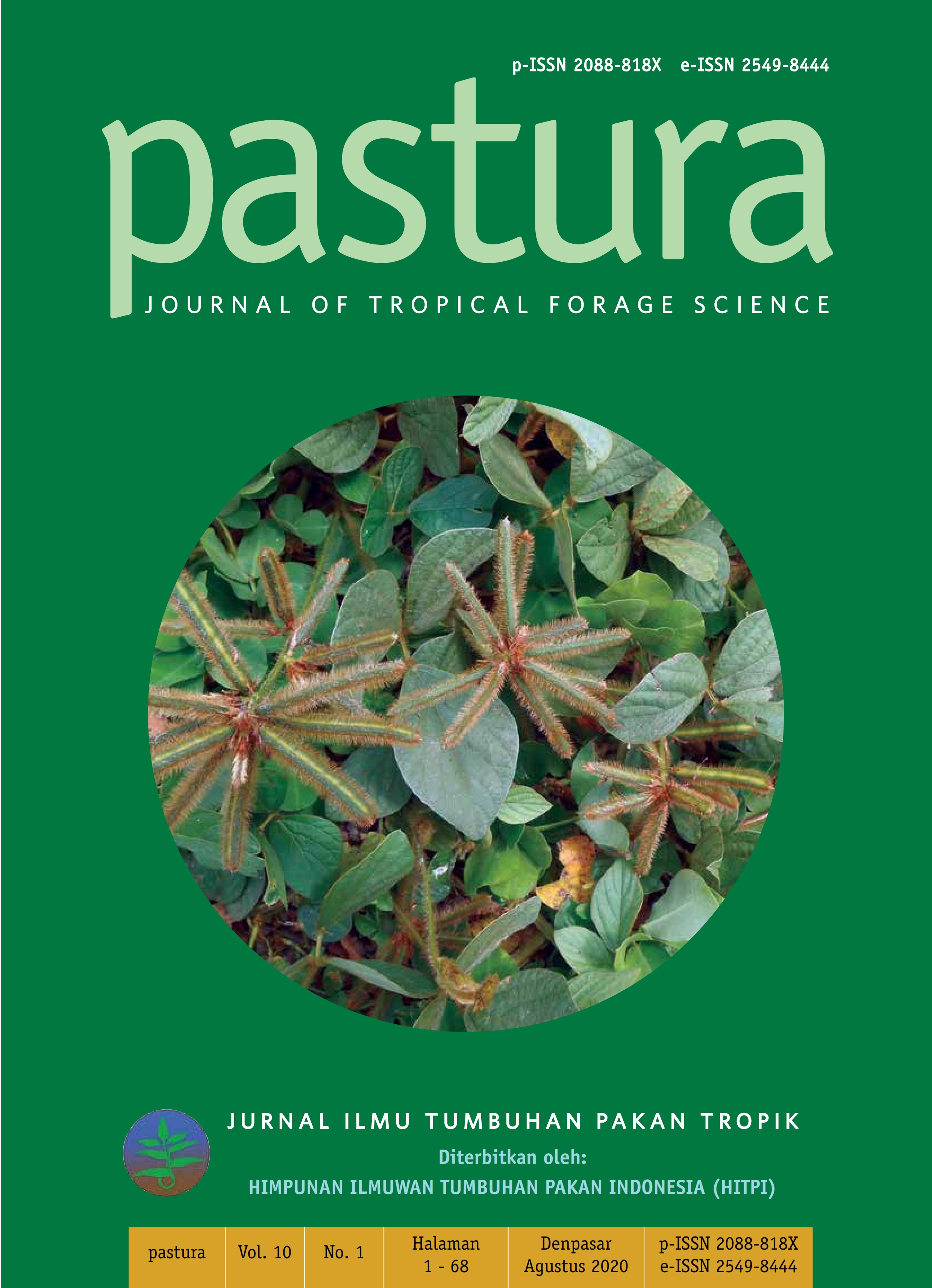KADAR MINERAL DALAM DARAH DAN JUMLAH BAKTERI DALAM RUMEN KAMBING YANG DIBERI JERAMI JAGUNG DAN SUPLEMEN UREA GULA AREN BLOK
Abstract
Penelitian ini bertujuan untuk mengkaji efektivitas penanggulangan kekurangan mineral melalui pemberian
urea gula aren blok (UGB) pada kambing dengan melihat perubahan kandungan beberapa mineral dalam
darah, juga menghitung jumlah bakteri dalam rumen. Penelitian dilaksanakan selama 3 bulan. Ternak
yang digunakan terdiri dari 24 ekor kambing betina lokal, berumur ± 1 tahun dengan berat badan ± 18
kg. Kandang yang digunakan adalah kandang individu dengan ukuran 2×2×1 m, yang dilengkapi dengan
tempat makan khusus untuk penempatan UGB. Hijauan yang digunakan adalah jerami jagung, Pakan
tambahan UGB diberikan secara konstan sebanyak 300 g/ekor/hari dan air minum diberikan secara ad
libitum. Ransum perlakuan yang diberikan diatur sebagai berikut R0 = Jerami jagung ad libitum + 0 gram
UGB dan R1= Jerami jagung ad libitum + 300 g UGB. Variabel yang diamati adalah kadar mineral (Ca, Mg,
P, Na, K, dan Cl) dalam darah dan jumlah bakteri dalam rumen kambing. Data yang diperoleh dianalisis
dengan menggunakan t-test. Kesimpulan yang didapat dari penelitian ini adalah bahwa pemberian jerami
jagung dan mineral blok (UGB) dapat meningkatkan kadar mineral dalam darah dan meningkatkan jumlah
bakteri dalam rumen kambing
Kata kunci: kambing, jerami jagung, UGB, mineral, bakteri





